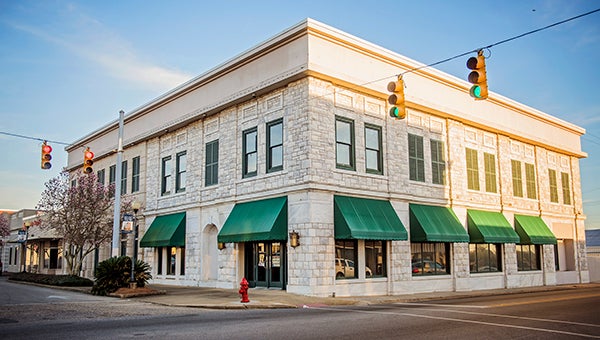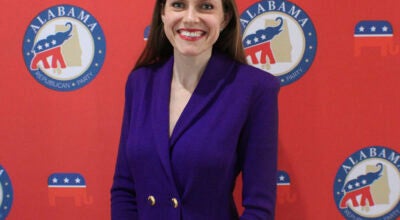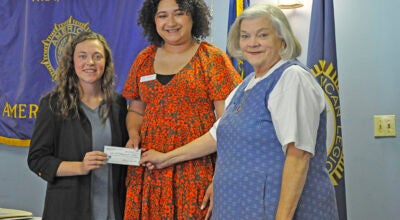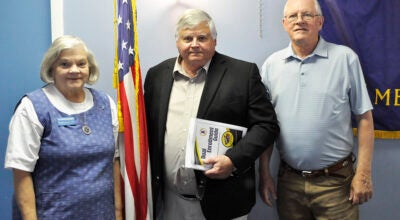Troy University to turn former Regions building into ‘IDEA Bank’
Published 3:00 am Wednesday, July 12, 2017

- Messenger photo/Jonah Enfinger
The former Regions bank on the Square will now house Troy University’s “IDEA Bank,” a center focused on helping students become entrepreneurs.
Dr. Judson Edwards, dean of the Sorrell College of Business, spoke to the Troy Rotary Club on Tuesday about the university’s plans for the Innovation Design Entrepreneurship Accelerator (IDEA).
“One of the things that we have that has flown under the radar is the Small Business Development Center (SBDC) which covers 10 areas in southeastern Alabama,” Edwards said. “In the past five years, our staff consulted with 88 new-start businesses. There are 492 jobs associated with those businesses and helped match small business with $250 million worth of federal contracts– and that’s all done by two ladies at the SBDC. It’s amazing to see what they’ve been able to do with the limited resources they have.
“We’ve done a great job serving outside the walls of Troy University, but we haven’t been doing enough with our own students.”
The Troy University Foundation purchased the space for the university for $535,000. The space consists of multiple buildings comprising nearly three quarters of a city block.
Edwards told members the story of junior marketing major Avalon Dudinsky, one of the inspirations behind buying the building and starting the program. While in college at Troy, Dudinsky started an LLC to sell a homemade spice made by a former employer and attempted to turn it into a business.
“Here’s the product,” Edwards said, holding up a bottle of Stan’s Stuff spice, ready for sale. “You can buy this at Piggly Wiggly. She’s in 20 different retailers and it all started as a business in her dorm room.”
But Dudinsky had to go “all over the place” to find the help she needed to start the business, Edwards said. The IDEA Bank is the proposed solution.
“There are even more complexities to Avalon’s story,” Edwards said. “Like the fact that she couldn’t get a business license because she didn’t have a physical address and she had to find professors and alumni with connections to help her get into certain retailers.
“Every year there are 7,000 or so stories coming through Troy University just like Avalon’s, they just need the help and a pathway to do it. This center for entrepreneurship will help give them the ability to start a business or develop a business so nobody is looking in 5 to 10 different locations to try to get assistance.
“One of the largest minors at Troy is the business minor. A lot of students are interested in starting their own business, so we’ve been working to start a new entrepreneurship minor that’s more hands-on and applied to help them turn their ideas into businesses. We’re looking at offering SBDC training programs as part of the curriculum so students are coming out of class with a business plan.”
Edwards said the plan is to turn the first floor into a “flex space” that allows for aspiring student entrepreneurs to bounce ideas off of each other, mixing those in the business with the creative arts to help come up with innovative business solutions.
“It can be a classroom one day and a coffee shop the next day,” Edwards said. “Some places we’ve taken a look at have a commercial kitchen where students can test out restaurant ideas and turn it into a restaurant for a day – that’s how we envision using the space downtown.”
Edwards said the university is considering turning the second floor of the building into housing for certain entrepreneurship minors.
“Students would not only get the benefits of working together on the first floor, but also living together on the second floor,” Edwards said. “It would bring more student traffic downtown while creating a living and learning space for our students.”
Edwards said officials are still thinking about what to do with the back building and drive-through and about how things like creating housing in the building could generate revenue.
“We plan to use this facility not as anchor, but as something that can generate revenue for the university as well,” Edwards said. “All of the deans have a million ideas for what can be done with this building.”





